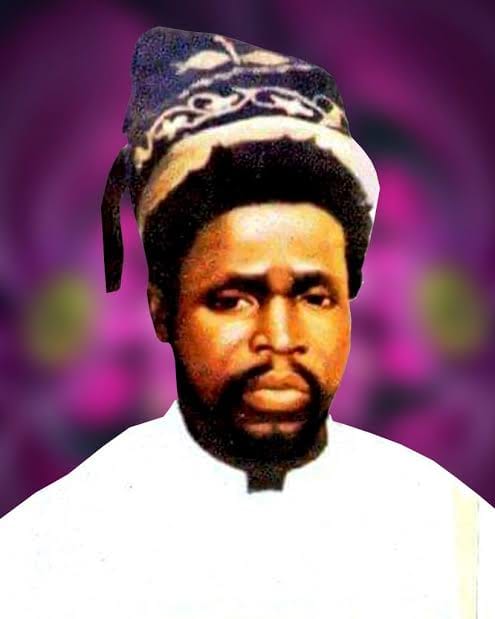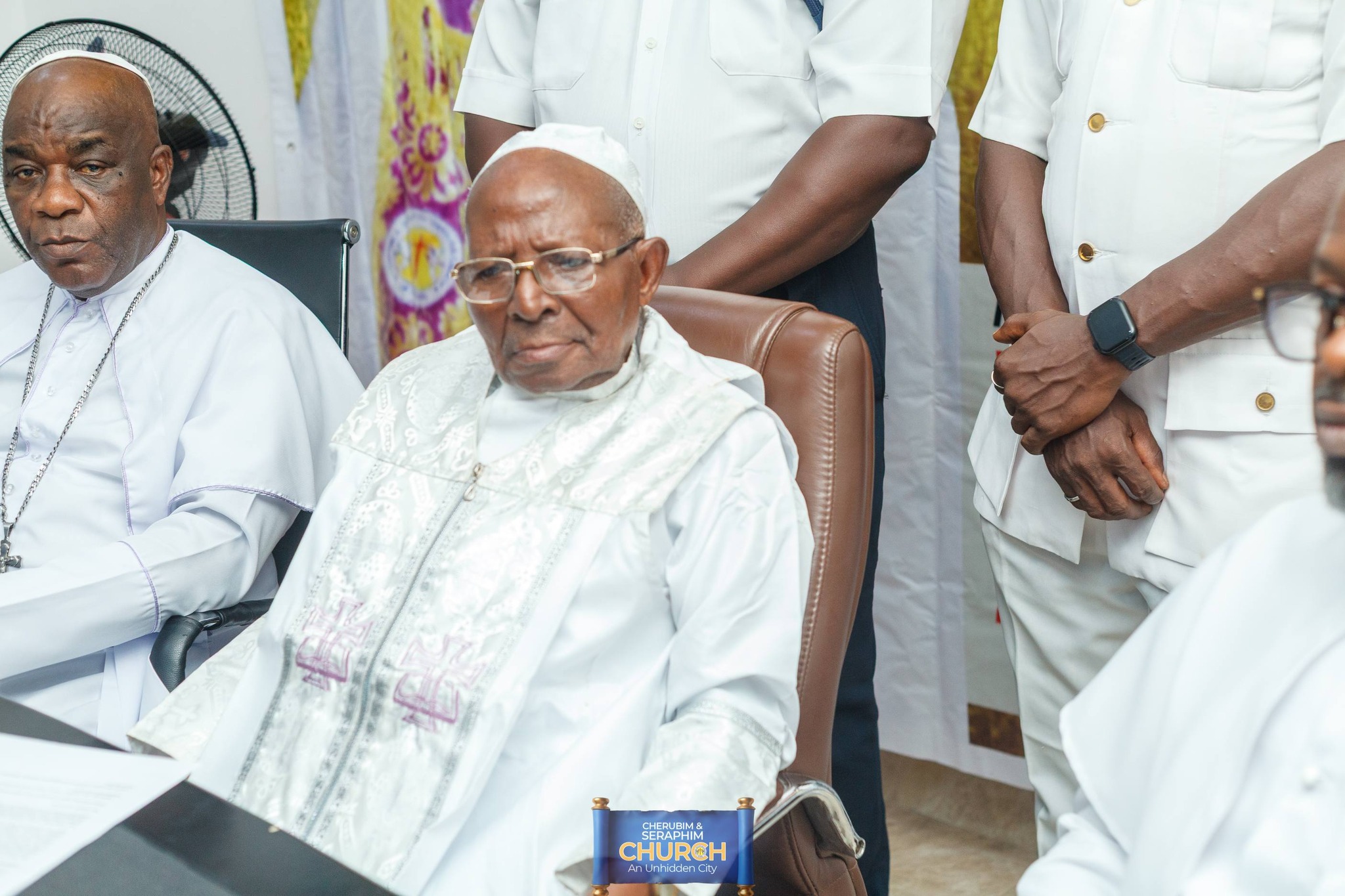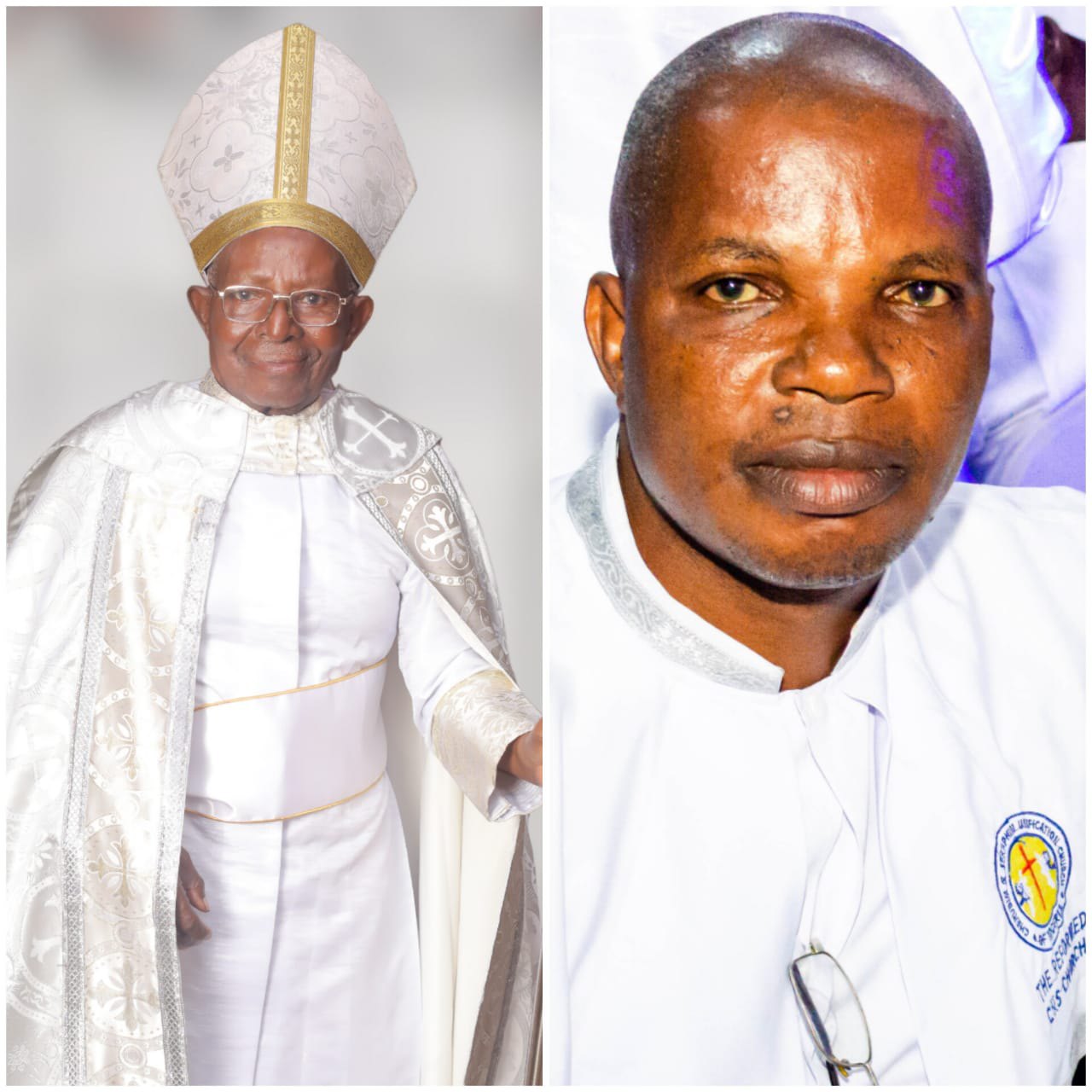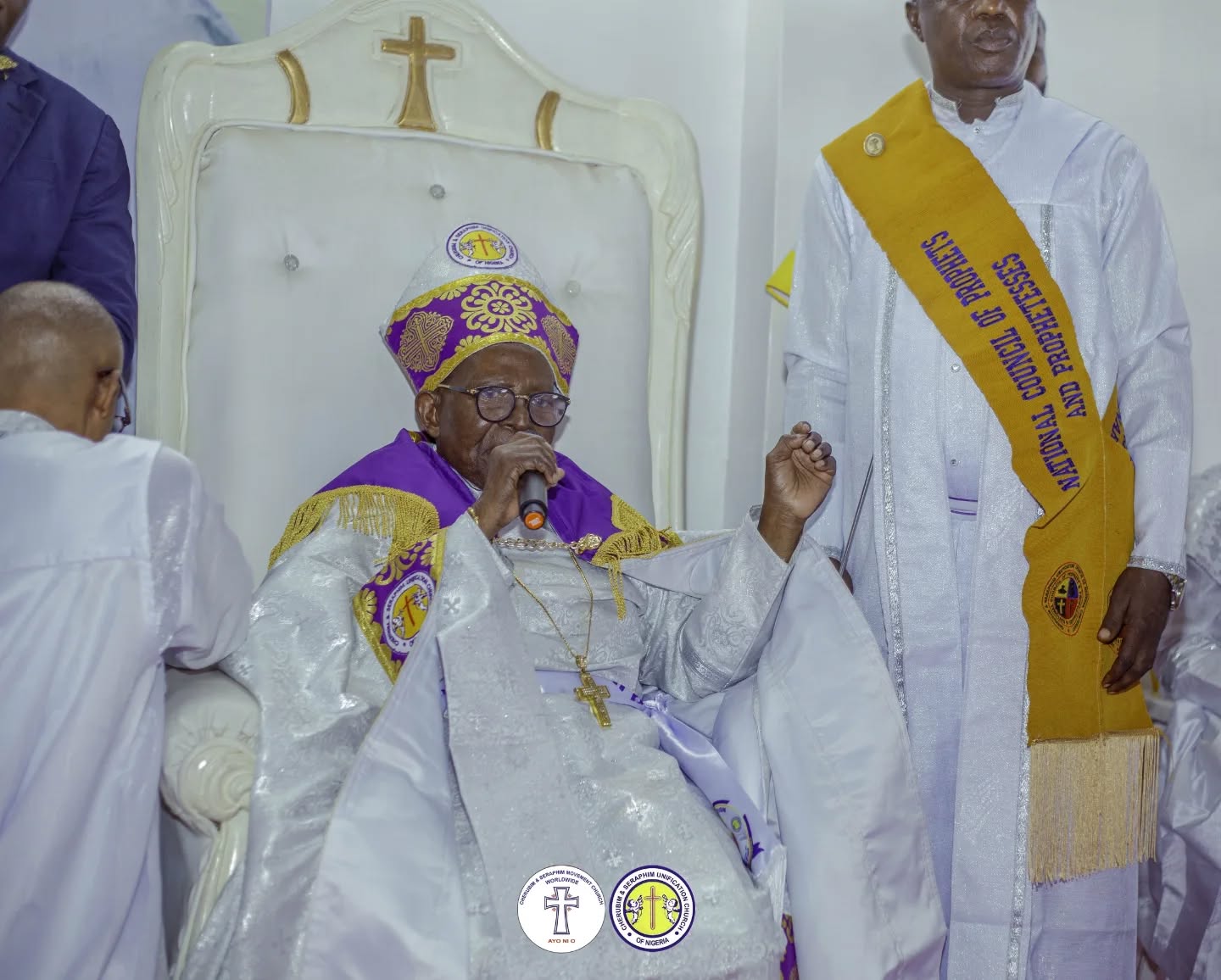Of Orimolade, Akindayomi, oshoffa and Ositelu - The making of Pentecostalism in Nigeria 2 By Dele Osunmakinde

"In the vast tapestry of Nigerian religious history, the name of Moses Orimolade Tunolase emerges as an immutable presence, a luminary that illuminates the shadows of colonial Nigeria. Through his resolute dedication to the gospel, he ignited a conflagration of revival that transcended the confines of time and space, reshaping the religious fabric of the nation. Within the realms of this enduring scholarly and philosophical homage, we embark upon a profound expedition, unravelling the transformative influence encapsulated within Orimolade's existence. We delve into his pioneering initiatives, extraordinary accomplishments, and the enduring legacy reverberating through the corridors of time."
'another prophet 'Moses' by name, was busy during the week holding open-air revival services. He professed to have been translated to the worlds above, where he saw a vision and was taught to read though he attended no school. He advances the ability to invoke angels and prescribes prayers of his own creation to meet all conditions and desires…Many throng around him: some of whom we regard as intelligent and sensible people…He has found a disciple in an ordained minister of a particular denomination who heads the procession of religious fanatics to be seen holding meetings at cemetery street on Thursday evenings,
Nigerian Spectator Newspaper September 1, 1925
The indelible impact and enduring relevance of the white garment churches, specifically the Cherubim and Seraphim Church, Celestial Church of Christ, Church of the Lord Aladura, as well as the Eternal Sacred Order of the Cherubim and Seraphim, demands meticulous examination within a scholarly and philosophical framework. This discourse endeavours to explore the historical contributions of these indigenous groups to the rich tapestry of Pentecostalism and Christianity in Nigeria, highlighting the significant roles played by Moses Orimolade Tunolase, Christiana Abiodun Akinsowon, Samuel Bilewu Joseph Oschoffa, and Josiah Olunowo Ositelu.
1 The white garment revival in Nigeria unfolded through fascinating circumstances, led by individuals who exhibited extraordinary spiritual experiences and devotion. Christiana Abiodun Akinsowon, later known as Captain Abiodun, a member of St. Paul's Church in Breadfruit, commenced her journey in 1925 when she began experiencing angelic visitations, culminating in an extended trance. Recognising the need for divine intervention, she and Moses Orimolade, revered as "BABA ALADURA," embarked on a spiritual quest that resulted in her revival under his prayerful guidance.
2 Orimolade assumed the role of guardian and mentor to Akinsowon, and together, they conducted regular prayer meetings and ministered to individuals at his residence, known as "Ago Isofin." However, as the group experienced exponential growth, transcending the confines of a private dwelling, a transition to a public space became imperative.
3 These gatherings were characterised by Intense and prolonged prayers, soul-stirring musical worship, and scriptural exhortations. Orimolade's cherished hymn, "Let us with a gladsome mind, praise the Lord for He is Kind," sung with deep devotion and faith in the Yoruba language, resounded throughout the meetings, serving as a testament to the profound spirituality and unwavering conviction of the participants.
4 As the group continued to expand, Orimolade contemplated the necessity of formalising their identity. Initially lacking a specific appellation, the group functioned as a prayer movement, attracting individuals from diverse church backgrounds who shared a common desire for spiritual growth. However, the transition to a public setting necessitated adopting a name, as the confines of Orimolade's residence could no longer accommodate the burgeoning numbers.
5 Orimolade and Akinsowon, despite their stark differences in age, demeanour, and socioeconomic background, each made remarkable contributions to the annals of Nigeria's Christian history. Orimolade, often called "BABA ALADURA," stood as an enigmatic figure, revered as one of the most accomplished evangelists of the early 20th century. He fearlessly preached the gospel, challenging prevalent practices of witchcraft, sorcery, and idolatry in locations such as Ikare, igniting a spiritual awakening in various regions of western Nigeria. His audacious confrontations dismantled idols, engaged supernatural forces, and revitalised Christianity in numerous cities.
6 Between 1916 and 1924, Orimolade embarked on open-air crusades, traversing cities such as Ogbagi, Akungba, Oka Akoko, Ikiran, Ilesi, Irele, Ifon Owo, Benin, Idda, Lokoja, Okene, Onitsha, Sapele, Omuo, Lokoja (present-day Abuja), Igan, Ikasa, Egbe, Bida, Jos, Zaria, Kano, Bauchi, Sokoto, Borno, Kano, Ilorin, Offa, Ikirun, Osogbo, Ede, Ogbomoso, Ibadan, and Abeokuta. Notably, during his visit to Abeokuta, he arrived amidst the peak of the Abubi War, displaying unwavering commitment to his mission.
7 In 1924, Moses Orimolade arrived in Lagos and initiated his campaign from his base in Ebute Ero. Regularly preaching in churches, he swiftly established himself as the preeminent revivalist of the era. His campaign in Lagos encompassed open-air preaching devoid of formal affiliation to specific churches. Central to his message were emphases on unwavering faith in the Lord Jesus Christ, reliance on the power of the Holy Spirit, the efficacy of prayer for healing, and the utilisation of Psalms in worship.
8 By 1925, Orimolade had attained unprecedented popularity in Lagos, attracting a devoted following akin to a cult. During this period, he was approached to pray for Christiana Abiodun Akinsowon, whose subsequent revival further cemented his influence.
9 In 1925, Orimolade called for a special period of fasting and prayer to receive divine guidance in determining a name for the group. After two prior confirmations from group members, he proclaimed the name of the assembly to be "Egbe Serafu," signifying "Seraphim Society" in the Yoruba language. Approximately a year later, following another spiritual encounter, the name was expanded to "Cherubim and Seraphim Society." At this juncture, the membership comprised individuals from diverse missionary churches and varied walks of life, including members of the upper echelons of Lagos society. The group's primary objective was to invigorate the spiritual lives of Christians within existing churches, functioning as a revival-promoting society rather than an independent church entity.
10 One noteworthy contribution of Orimolade was his staunch opposition to the syncretism of Christianity with idolatrous practices. Publicly denouncing and preaching against the prevalent tendency to consult witch doctors and sorcerers, he challenged the clergy and laity to abandon such practices, fostering a purer expression of the Christian faith.
11 In 1926, Thomas A. Ogunbiyi penned a booklet titled "Awon Serafu" ("The Seraphim") to provide guidance and cautionary advice to society. He urged caution in adopting the ways of seraphs, providing a biblical exposition on the angelic class known as seraphim. Despite Ogunbiyi's warnings, many disregarded them due to the perceived elevated spiritual status of the group.
12 The power of prayer and fasting remained a central theme in Orimolade's teachings. The group conducted evening two-hour prayer sessions and established cells for in-depth biblical studies. Christiana Akinsowon, known as "Captain Abiodun," led a fervent squad that evangelised vast regions of Yorubaland, exhibiting remarkable zeal and energy and extending the group's reach into the hinterlands.
13 The group's growing popularity inevitably engendered hostilities from established churches, who viewed them as rivals. Consequently, society gradually assumed the functions of an organised church, incorporating church rites, intensifying engagement in Bible studies, and composing hymns.
14 The transition into a fully-fledged church engendered a schism and a power struggle between Orimolade and Akinsowon. Akinsowon, possessing charismatic leadership qualities and boundless energy, faced accusations of infidelity, while a woman claiming to be Orimolade's wife took up residence with him, further exacerbating tensions. The church leadership implored Orimolade to sever ties with the woman, but he disregarded their counsel.
15 The leadership discord led to physical altercations between factions supporting Orimolade and Akinsowon. In 1929, Orimolade officially penned a letter to Akinsowon, requesting her departure from the society to establish her group. This separation resulted in two factions: Orimolade's "Eternal Sacred Order of the Cherubim and Seraphim" and Akinsowon's "The Cherubim and Seraphim Society."
16 Orimolade withdrew into seclusion and became increasingly distrustful, finding it challenging to trust anyone. Accusations of inconsistencies were levelled against him, prompting a demand for a response. However, during the assembly where the memorandum was read, Orimolade maintained silence. Consequently, approximately 700 members left him that day, forming yet another faction known as "The Praying Band of the Cherubim and Seraphim."
17 In 1931, a delegation from major towns in western Nigeria sought to reconcile the various factions. However, it was denied an audience with Orimolade, who claimed that the spirit prevented him from meeting them. These developments further fragmented and complicated the Cherubim and Seraphim movement.
18 In 1931, Pa Akindayomi, the founder of the Redeemed Christian Church of God, joined the Cherubim and Seraphim movement and remained a member for 21 years before establishing his church. Regrettably, Orimolade passed away in 1933 at 54, leaving behind a splintered Cherubim and Seraphim community, with only a tiny fraction continuing under his leadership.
19 As the greatest evangelist and revivalist of colonial Nigeria, Orimolade exhibited an unparalleled determination to spread the message of Christianity to every corner of the nation. In an era devoid of modern communication and transportation infrastructure, he traversed vast distances with unwavering resolve, illuminating the path with the radiance of the gospel. His open-air crusades, held in major cities across the core of Islamic northern Nigeria, including Sokoto, marked a groundbreaking departure from established religious norms. He fearlessly confronted the prevailing challenges and opposition with courage and conviction, steadfastly championing the cause of faith in the face of adversity.
20 Orimolade's pioneering efforts in the realm of prayer movements and faith healing revolutionised the religious landscape of Nigeria. He stood at the forefront of a spiritual awakening, introducing a new paradigm that emphasised the power of prayer and the miraculous healing touch of God. His unwavering belief in divine intervention and his profound understanding of the supernatural propelled him to challenge conventional wisdom and embrace a spirituality deeply rooted in the fervent pursuit of God's presence. In doing so, he facilitated the emergence of the 'aladura churches,' spiritual communities that strongly emphasised prayer, healing, and the communion of believers.
21 One of Orimolade's most enduring legacies is the pioneering of the Cherubim and Seraphim movement, a religious movement that continues to flourish nearly a century after his demise. Through his visionary leadership and unwavering commitment to spiritual growth, he laid the foundation for a community of believers that transcended denominational boundaries, uniting Christians from various backgrounds in a shared pursuit of divine revelation and spiritual renewal. This interdenominational revival fire he brought to the mission churches ignited a fervour for spiritual awakening, breathing new life into established religious institutions and inspiring generations to seek a deeper connection with the divine.
22 Furthermore, Orimolade's influence extended beyond his lifetime, as he nurtured and raised exceptional leaders who would continue his work and leave an indelible mark on Nigerian Christianity. One such luminary was Pa Josiah Akindayomi, a protégé of Orimolade who later founded the Redeemed Christian Church of God, a prominent and influential Christian denomination in Nigeria and beyond. Orimolade's mentorship and guidance shaped the destiny of individuals and propelled a broader movement of spiritual renewal and transformative leadership that continues to impact countless lives today.
In conclusion, Moses Orimolade Tunolase, the great evangelist and revivalist of colonial Nigeria, stands as an icon of unwavering faith, courage, and dedication. His tireless efforts to spread the gospel, his pioneering work in prayer movements and faith healing, his lasting impact on the Cherubim and Seraphim movement and the emergence of the 'aladura churches' are testaments to his profound influence. As we reflect on his life and legacy, let us draw inspiration from his unwavering commitment to the pursuit of divine truth and his unyielding resolve to bring the light of the gospel to a nation in need. May his memory inspire generations, reminding us of the transformative power of faith and the enduring impact of a life dedicated to the gospel.
This is the beginning of the 'Aladura movement.' The vibrant and boisterous nature of the Aladura movement resonates as a significant catalyst in fortifying the spiritual capital of Christianity in Nigeria. Beyond its distinctive white garments and ethereal encounters, this movement illuminated the veiled darkness of Nigeria's colonial hinterlands with the resounding gospel of faith and power. Its resolute mission extended far beyond the confines of established religious norms, heralding a divine call for spiritual awakening and transformation. The Aladura movement's resounding impact expanded the horizons of Christian expression, embracing a rich tapestry of indigenous beliefs, practices, and fervent devotion, while ushering in a new era of spiritual exploration and discovery. Within the crucible of Nigeria's historical context, the Aladura movement is a testament to the unwavering pursuit of divine truth and the indomitable spirit of a people hungry for the power of the gospel.
In conclusion, Moses Orimolade Tunolase, the great evangelist and revivalist of colonial Nigeria, stands as an icon of unwavering faith, courage, and dedication. His tireless efforts to spread the gospel, his pioneering work in prayer movements and faith healing, his lasting impact on the Cherubim and Seraphim movement and the emergence of the 'aladura churches' are testaments to his profound influence. As we reflect on his life and legacy, let us draw inspiration from his unwavering commitment to the pursuit of divine truth and his unyielding resolve to bring the light of the gospel to a nation in need. May his memory continue to inspire generations to come, reminding us of the transformative power of faith and the enduring impact of a life dedicated to the gospel.




Leave Comments